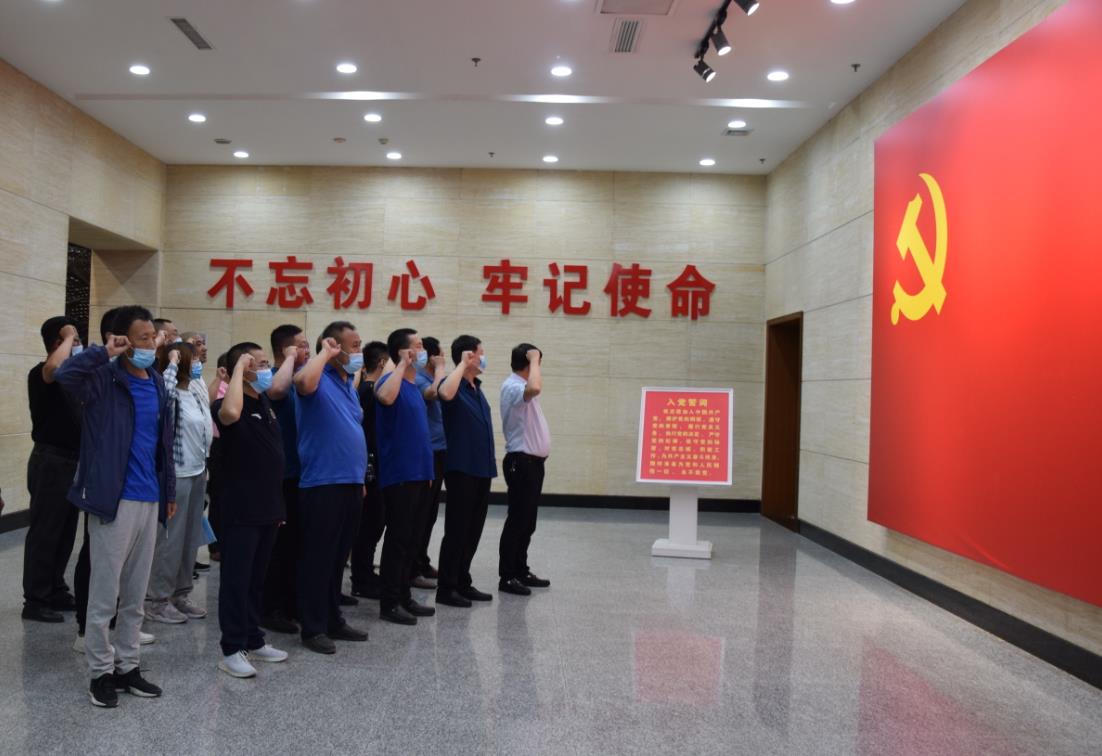In Shanxi Transition and Comprehensive Reform Demonstration Zone in Taiyuan, the province's first carbon neutrality research institute was established on March 11. It marked an important step in Shanxi's new sustainable development pattern featuring carbon emissions peaking and neutralization.
Several days after the establishment of the Shanxi Carbon Neutrality Strategy and Innovation Academy, a cold front arrived in the city of Linfen, southwestern Shanxi, on March 18.
In response, Wang Duibao, a resident in the city's Nanyu village restarted his heating-supply boiler, with an indoor temperature set at 22 degrees Celsius.
"We use biomass fuel for the boiler, which costs much less than electricity," Wang said. He added that the boiler is ready to work at any time.
The biomass boiler was developed by the carbon neutrality institution, before its official establishment, as one of its first solutions for carbon reduction.
The solution involves technologies that transform straws and fruit tree branches into environmentally friendly, highly efficient and near-zero-emission fuels at a low cost.
Villages in Linfen are pioneers of the solution, which is to be promoted across rural areas of Shanxi in the next few years, according to Zhang Jing, a senior executive of the institution.
"We have collaborated with Beijing-based Tsinghua University for the biomass project and more clean-energy solutions will follow in the near future," Zhang said.
Zhang said the institution is positioned as a "new type of research and development entity".Its operations cover R&D for new products and solutions, transferring research results, promoting new technologies and projects, offering consultative services and investing in clean-energy projects.
"We put a special emphasis on sustainable development in rural areas by offering clean-energy solutions to local residents," Zhang said.
One of its earliest projects for this purpose was developed in the rural areas of Luanping county in Hebei province. It helped install rooftop photovoltaic panels for more than 600 low-income households across 55 villages.
"The annual per-household power generation capacity was about 5,000 kilowatt-hours on average, which means an added net income of 1,200 yuan ($184) for each family involved," Zhang said.
"In Shanxi, we have plans to combine biomass fuel with photovoltaic power generation, which aims to offer more environmentally friendly solutions to farmers," Zhang added.
Carbon neutrality is a new concept of sustainability in China. Central authorities recently proposed new targets for carbon reduction-to realize a carbon peak in 2030 and carbon neutralization in 2060.
Wu Jia contributed to this story.
By YUAN SHENGGAO
 山西路桥:党建引领 建好“四好农村路”山西路桥建设集团党委扎实开展“党建质量提升年”,实施“六大工程”,立足“十四五”高质量、高速度、高效益发展的战略基点,全面提高党建质量和党建引领发展水平,为打造“国内一流的交通基础设施投资、建设、施工现代化企业集团”提供坚强政治保障。
山西路桥:党建引领 建好“四好农村路”山西路桥建设集团党委扎实开展“党建质量提升年”,实施“六大工程”,立足“十四五”高质量、高速度、高效益发展的战略基点,全面提高党建质量和党建引领发展水平,为打造“国内一流的交通基础设施投资、建设、施工现代化企业集团”提供坚强政治保障。
 常住人口3491万 山西人口普查数据"出炉"山西省统计局向社会通报山西省第七次全国人口普查主要数据。数据显示,山西省常住人口为34915616人,比2010年(第六次全国人口普查数据,下同)减少2.23%,年平均减少0.23%。山西省常住人口总量减少,主要受人口流动变化等因素影响。
常住人口3491万 山西人口普查数据"出炉"山西省统计局向社会通报山西省第七次全国人口普查主要数据。数据显示,山西省常住人口为34915616人,比2010年(第六次全国人口普查数据,下同)减少2.23%,年平均减少0.23%。山西省常住人口总量减少,主要受人口流动变化等因素影响。